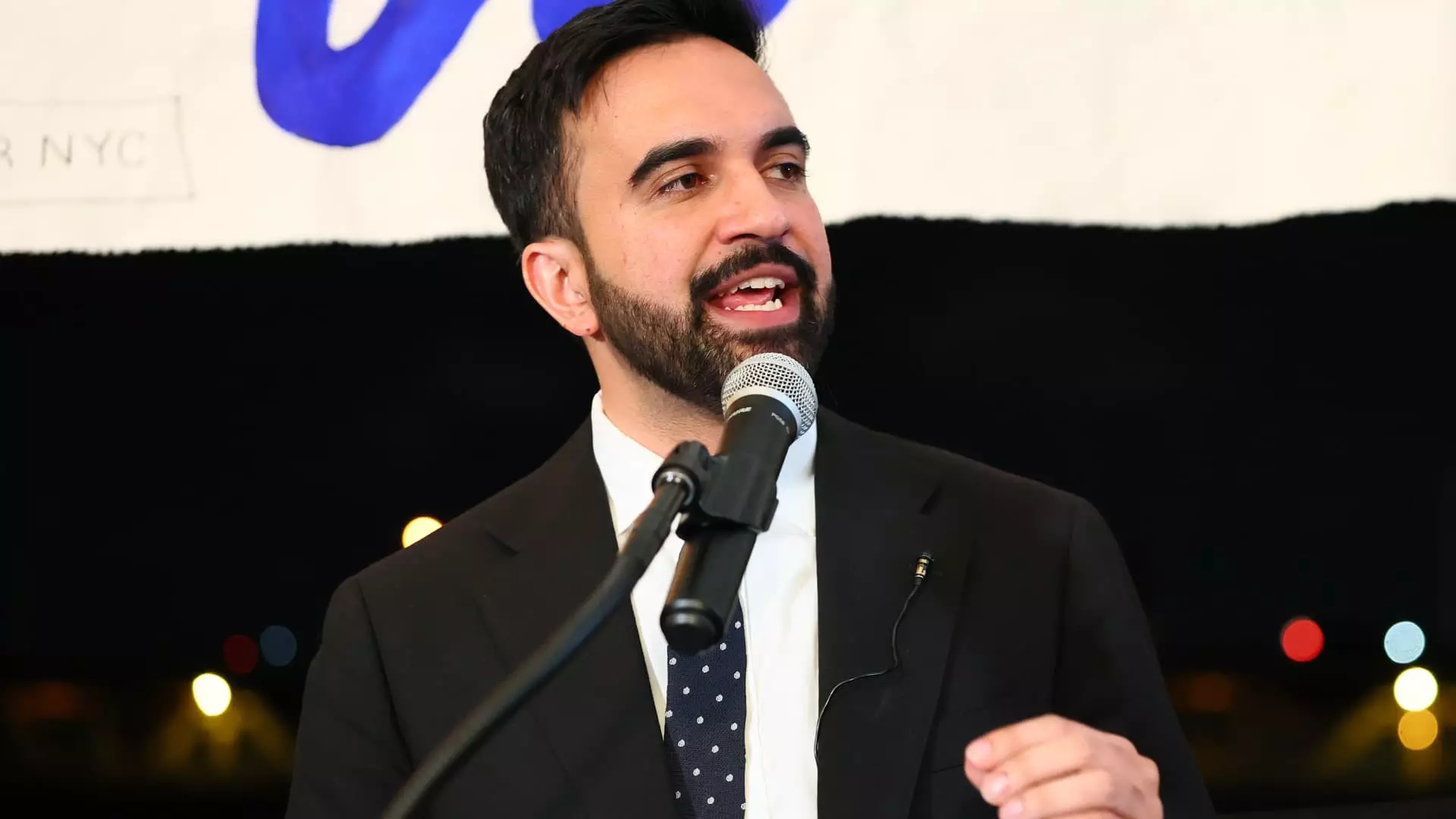Zohran Mamdani’s victory in the New York City Democratic mayoral primary is a watershed moment that could spell trouble for the city’s real estate sector. While he boasts progressive credentials and an agenda aimed at addressing housing affordability, the implications for financial institutions, particularly regional banks like Flagstar, are concerning. Mamdani made waves by advocating for a freeze on rent increases in stabilized units—an audacious move that could drastically alter the financial dynamics for both landlords and lenders. As fiscal conservatives and moderate liberals evaluate these developments, the potential fallout on New York’s real estate investments cannot be understated.
Flagstar, recently rebranded from New York Community Bancorp, is currently navigating a regime of financial uncertainty. With nearly 25% of its portfolio tied to New York’s multifamily real estate, the implications of Mamdani’s proposals could result in significant exposure for the bank. Established analysts are already sounding the alarm—Deutsche Bank’s Bernard von-Gizycki estimates a staggering $16 to $18 billion of exposure to adverse rent regulations. Despite claims that a short-term freeze would be “manageable,” the broader consensus indicates that prolonged rent control could compel banks to bolster their loan loss reserves, creating a ripple effect that could destabilize the financial environment.
The Economic Impact of Rent Control
Rent control has long been a contentious issue in economic discussions. Mamdani’s proposal to halt rental increases is driven by the noble intention of making housing affordable. Still, the inherent danger of his plans lies in their potential to stifle investment and development. What many fail to consider is that maintaining a robust housing market is paramount for economic growth. Restricting rental pricing tends to discourage property development and maintenance, leading to deteriorating conditions in existing housing stock. Moreover, concerns around landlords opting to convert their properties into condos or even selling them off could lead to a chaotic housing shortage.
Critics of Mamdani’s platform argue that his policies could instigate a flight of capital from one of the world’s most vibrant urban landscapes to friendlier jurisdictions. If the underlying economic incentives dissolve under the weight of stringent regulations, we may soon find ourselves facing a significant contraction in the rental market, the effects of which could echo through the city’s entire economy.
The Role of Financial Institutions
Flagstar, under scrutiny from various fronts, continued to attract investments even amidst uncertainties—most notably from former Treasury Secretary Steven Mnuchin. Yet, as the bank now grapples with the looming threat of Mamdani’s policies, the question arises: how much longer can its promise amidst precarious multifamily exposure be deemed viable? The projected establishment of rent freezes fundamentally alters risk assessments that banks perform, indicating a drastic re-evaluation of portfolios in the face of burgeoning regulatory pressures.
Mamdani, though not directly controlling tax policies, has advocated for raising corporate tax rates. The associated lingering question remains whether such measures will push financial institutions, already on edge, to consider relocating or diminishing their presence in New York altogether. Capital flight could become a substantial risk for banks like Flagstar, leading to a compounded impact on employment and overall economic vitality.
The Future of New York’s Political Dynamics
As Mamdani moves closer to the general election, the reality sets in that political maneuvering could become a double-edged sword. His progressive agenda has the potential to score votes but may simultaneously alienate influential stakeholders, including prominent business leaders and financial institutions. Facing Republican nominee Curtis Sliwa in November, Mamdani’s position on housing could easily become a central theme of the campaign, with consequences reverberating beyond just electoral results.
Moreover, with ranked-choice voting obscuring the immediate outcome, Mamdani’s support base needs to galvanize quickly, or risk being outmaneuvered by the establishment’s counter-narratives. As the political landscape unfolds, one wonders whether Mamdani realizes that genuine change also requires offsetting the interests of those who ensure the city’s financial health. The balance between bold reforms and economic stability has never been more precarious.

